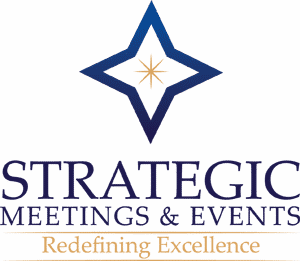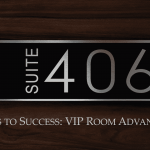Negotiating How to Prepare and Execute Successful Contracts
By Christy Lamagna, CMP, CMM, CTSM
• Concessions and clauses
• Emotionally intelligent negotiating

A quick recap of 2017 strategies:
The first thing an event strategist does when planning an event is to hold a discovery session. Knowing an event’s goal and getting key stakeholder’s buy-in, along with target audience input, is a critical element of an event’s foundation.
Being an integral part of, what I call, the ‘Holy Trio’ of an organization is also essential. Marketing, sales, and event strategy are three legs of a tripod. Without one, the other two cannot operate optimally. With that established and your discovery session held, it’s time to do a venue search, site inspection, and decide which venue will best allow you to achieve your established event goal.
Now, it’s time to go to contract.
An event may have literally dozens of contracts depending on how many outside venues and vendors you use. Contracts can range in size and complexity, but all require careful attention to detail and an open approach to the process.
Given we handle contracts more frequently than just about any other event paperwork we process, why are so many of us ‘contract adverse?’ Why do we freeze up or get tense at the thought of reading, editing, and negotiating a contract? I’m sure there is a survey as to which task people would prefer less; public speaking or contract negotiating, but my money says it would be a close race. (We want to know what you would choose. Take the Planners’ Poll here.)
If we break it down, there are two stages to the process: preparing for the negotiations and the negotiations themselves.
Prep work:
1. Every event has its own personality, needs, and goals. It is necessary that your contract reflect them. Concessions, space used, and how money is spent represent some of the unique elements and needs of the program. For instance, you may require a lower F&B minimum for a sales meeting than an awards event. A regional conference may entail free or discounted parking instead of discounted spa services. An event that has a large contingency of VIPs may require a higher ratio of suites to ‘run of house’ (ROH) rooms than other events you host.
2. There is no rule you can’t insert your own clauses into an agreement. Develop a contract clause library you draw from. You can take clauses from other contracts, webinars, articles, asking other strategists, etc. A ‘no walk’ clause may be important for a high-volume venue or peak time of year, while a ‘no competitive groups’ clause may be essential for a high-level meeting or a product launch. If you are hosting a meeting during blizzard or hurricane season a ‘force majeure’ allowing you to cancel if a predetermined percentage of your group is unable to travel may be wise.
3. Be mentally prepared: know what you want versus what you need, know the difference, and be ready to compromise. Highlight needs in one color and wants in another. This also means having a backup venue if mutually agreeable terms cannot be reached.
Negotiating:
1. Emotional intelligence is critical. Emotions entering the negotiation process are not a challenge if they are positive emotions. Starting out anxious, angry, or tense is not helpful to the process. Eager, receptive, and creative are, conversely, positive emotions set a collaborative tone to the conversation. Emotion can either drown reason or buoy the creative process; it’s up to the parties involved to decide if they want to sink or rise to the occasion.
2. Understanding and managing your role, motivation, actions, and feelings is another aspect of emotional intelligence. While the process is not about you and should not be taken personally, it is essential to acknowledge that decisions are being made by people whose emotions can potentially hinder the discussions, being self-aware and self-controlled are key.
3. Realize both sides need to complete the process feeling good about it. If you take advantage of the other party, keep in mind that signing an agreement is the formal beginning of the relationship, not the end. If the other party is resentful, it is going to be a long road ahead.
Bonus tip: Leave at least 15 minutes before and after the discussion free in your calendar so you can prepare for and follow up on any discussion points. Put a ‘No interruptions’ sign on your door so you don’t get distracted. Don’t have a door? Book a room so you can work undisturbed.
Someone once told me that if both sides walk away from a settlement unhappy, a compromise was reached. I couldn’t agree less. While there is give and take in every negotiation, neither side should walk away feeling taken advantage of, much less both. You may not get everything you want, but if you prioritize, create a ‘must have’ versus ‘would like to have’ list, and keep the discussions friendly and professional, you’re off to a great start.
If the person on the other end of the phone isn’t approaching things in the same spirit of collaboration and good faith you are, give yourself permission to address it. We are often too quick to endure behavior which is not productive for either side. There are non-confrontational ways to approach the conversation, again, the key is managing your emotions and being aware of your motivation. (More to come about that in my next article.)
The bonus is that these skills transfer to all aspects of life. Put them to work when negotiating with your family on who is hosting the next holiday, when you are buying a car and haggling for the best price, or negotiating for a well-deserved promotion or raise. If you learn and utilize these skills and elevate your emotional intelligence both you and your events will come out winning.
Want to continue the conversation? Find me on Twitter: @SMEChristy or email me: Christy.Lamagna@Strategic.Events.





